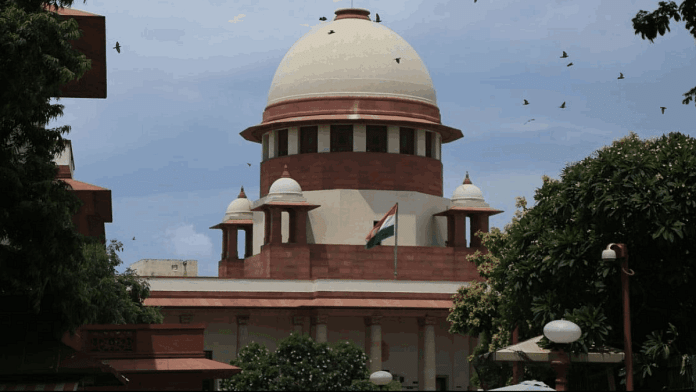New Delhi: The Supreme Court Friday advised the Tamil Nadu governor, R.N. Ravi, to resolve the impasse with the state government over 10 bills on which he had initially withheld his assent but later referred to the President after the legislative assembly passed them again without any amendments.
A three-judge bench led by Chief Justice D.Y. Chandrachud gave the suggestion verbally to Attorney General R. Venkataramani, advising him not to invite a judgment from the court. The top law officer appeared for the governor.
The CJI, who was more vocal, made it clear to the attorney general that under Article 200 of the Constitution, the governor has only three options — grant assent, withhold assent to the bill or reserve it to the President.
“All three are alternatives,” the CJI stressed.
Frowning upon the presidential reference, the CJI said in this case, the governor first withheld his assent. “Once he withholds assent, there is no question of him then referring it to the President. There are only three options for him,” he added.
Moreover, the proviso of Article 200 doesn’t allow the governor to stall the bill once it is re-passed by the assembly in the original form, the CJI asserted.
“He has no fourth option,” he told Venkataramani.
On 13 November, the governor announced his decision to withhold his assent to 10 bills that pertain to modifications in state university laws. These bills propose to do away with the governor’s powers as chancellor of state universities to appoint vice-chancellors.
Following this, the state assembly convened a special session on 18 November and re-enacted the same bills. During a hearing on 20 November, the SC questioned the governor over the pending bills. Eight days later, the governor referred the bills to the President.
Also Read: ‘As chancellor, governor not merely titular head’ — SC quashes Kannur University V-C’s reappointment
CJI on the role of governor
The CJI referred to the apex court’s judgment delivered in a similar dispute between the Punjab government and the state governor.
Authored by CJI Chandrachud, the ruling holds that the governor has to send the bill back to the state assembly once he/she withholds it. The returning of the bill should be accompanied by a message outlining the objections, if any, raised by the governor or the changes he/she feels are needed in the bill.
In doing so, the top court had given a conjunctive reading to the substantive part of Article 200 and its two provisos that deal with a situation when the governor decides to withhold assent.
“Once he (governor) withholds assent, he cannot then say that now I am referring it to the President. When he withholds assent (and then it is re-passed), he cannot stall the bill there. The proviso doesn’t give him a fourth option. We have laid down the law on this,” the CJI added.
At this, Venkataramani contended that he would like the court to have a relook at its verdict in the Punjab case to reinterpret the proviso of Article 200.
According to him, the proviso would kick in only if the governor withholds assent, sends it back to the assembly with reasons and then the latter re-passes it.
However, in the present case, the same did not happen, though a communication was sent to the assembly when the assent was withheld, Venkataramani said.
However, the CJI was not convinced. He noted that, if the governor on withholding his assent to the bill says he is not bound to return it to the assembly, then he can “stultify the bill completely at his level”.
Distinction between offices of governor & President
The CJI went on to draw a distinction between the office of the governor and that of the President that has been delineated in the Constitution itself.
“Unlike the office of the President, who holds an elected office and has been conferred with much wider power under the Constitution, the governor as nominee of the Centre must exercise one of the three options in the substantive part of Article 200,” the CJI told the AG.
It was not the governor’s stand that the assembly session (which repassed the bill) could not be held, the CJI said. “The last line of the proviso (of Article 200) says he (governor) shall not withhold the assent,” he added.
The bench deferred the hearing to 11 December, but did not restrain the central government from processing the bill.
Meanwhile, senior advocate Abhishek Manu Singhvi, who appeared for the Tami Nadu government, urged the bench not to let the central government process the bill and forward it to the President.
“We do not want a situation where the President takes a decision and we have to come back to the court,” Singhvi argued.
However, the bench refused to do so and reiterated its concern over the impasse.
The CJI then turned to the AG and asked him to counsel the governor. “There are so many things which have to be resolved between the chief minister and governor. Please ask him to call the chief minister and sit down to resolve it,” he added.
(Edited by Richa Mishra)



